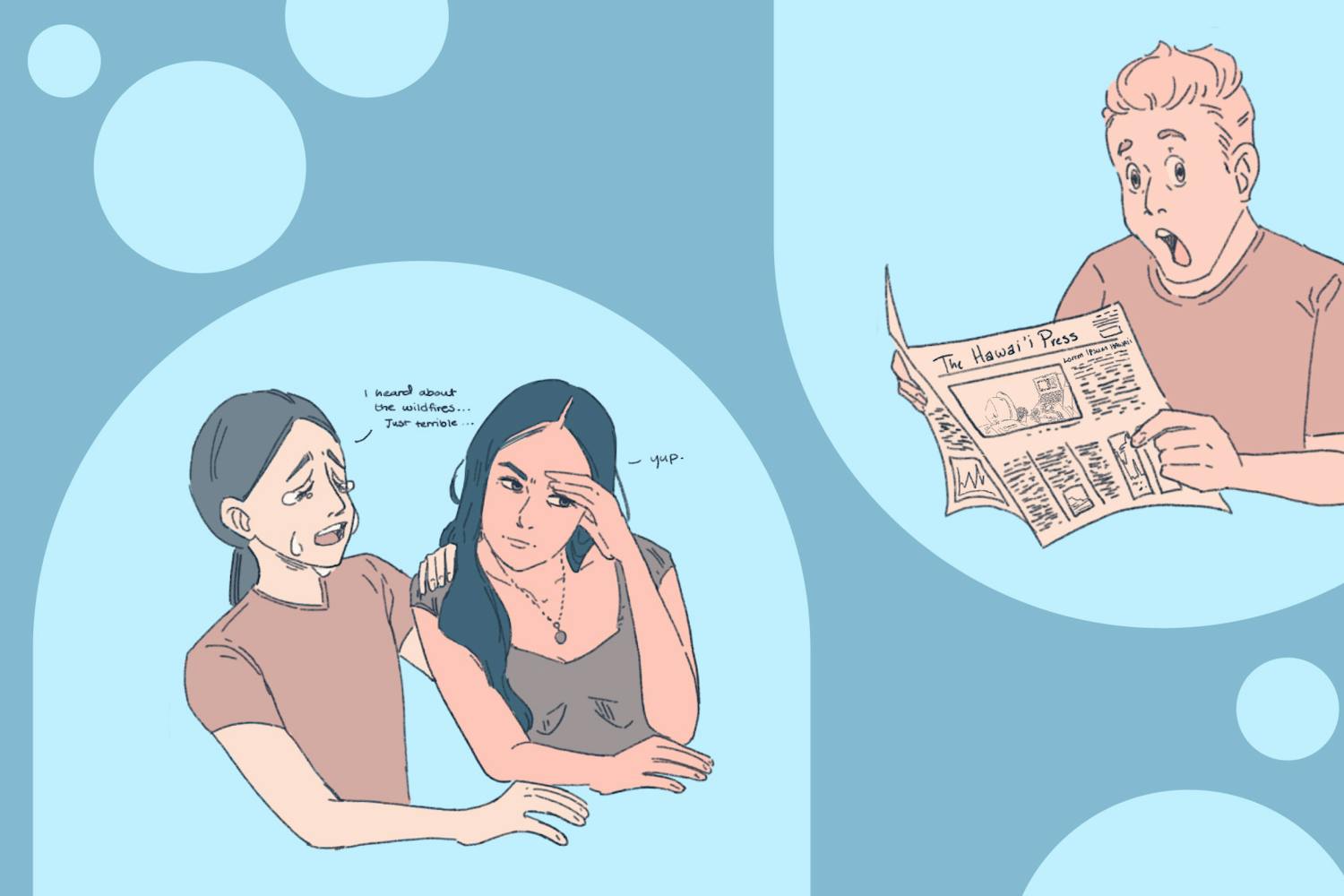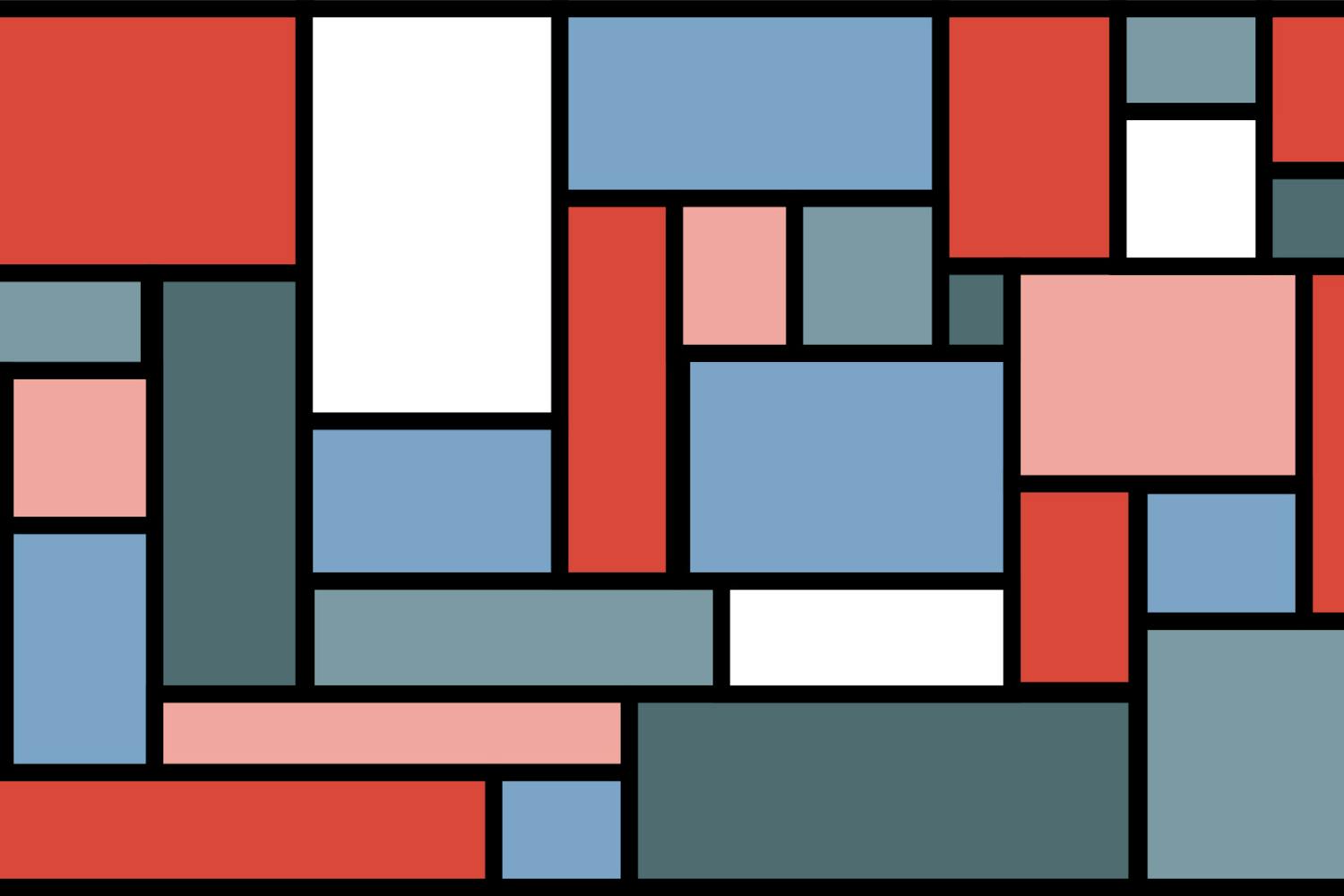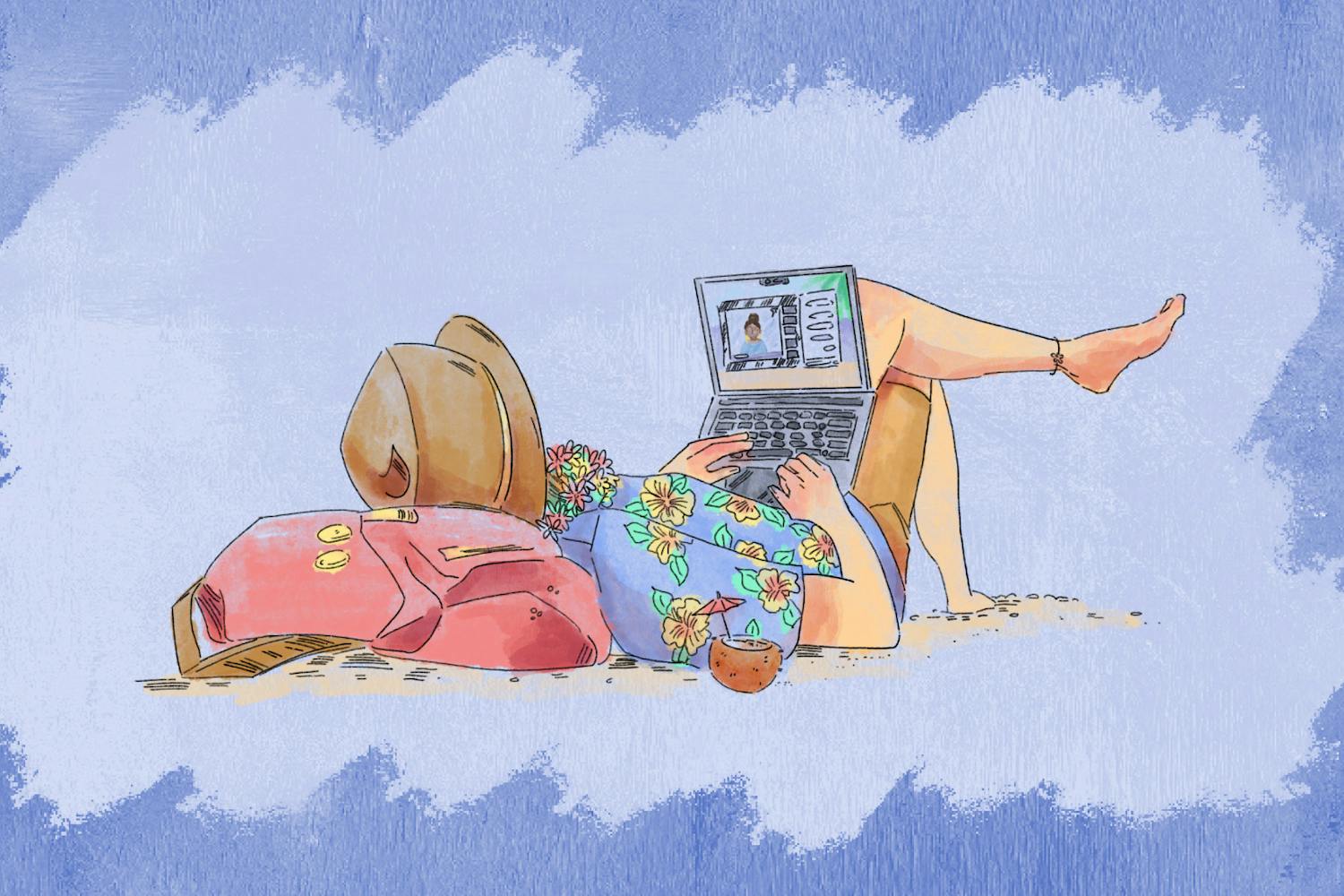If it weren’t for the occasional headscarf or “insha'Allah,” (a phrase that means “God willing) you may not guess that this is the first Muslim Students Association meeting of the year, and that these 70 Sun Devils (about half of them new members) are waiting to break the Ramadan fast together.
Zoya Tariq, sitting on the floor and eating pizza with friends a few minutes later, says Ramadan in America is much different than in her native Pakistan, because of the importance and community focus it has to Muslims here.
“In my country, [Ramadan] is just another day,” says the 20-year-old Computer Information Systems freshman and international student.
Tariq says this has been her most “productive” Ramadan ever, because she’s freer to practice her religion here. (In Pakistan, she explains, women are not allowed to enter the mosque.) She is now able to attend lectures, ask questions of faith to religious leaders, and interact with other Muslims.
“This makes more sense to me,” Tariq says. “The way it is in my country does not make logical sense to me.”
Regardless of cultural background, the Islamic holy month of Ramadan stands out as a time for reevaluating and refocusing one’s faith. For some Valley Muslims, it serves as a time for affirmation; for others, speculation. For everyone, it can be a time to seek answers about what it means to be an individual, a community member or believer in God — especially for college students and young adults, who are probably asking those questions already.
Everyone touched by Ramadan has a different experience with it, and the college student’s experience can be more unique still. Their stories together paint the human picture of one of Islam’s most valued practices.
Ali Imran, Education Director for MSA, says stories like Tariq’s speak to the vibrant and diverse Muslim community at ASU. His key words are “interfaith” and “learning,” and he says Ramadan is a good time for both because it’s an experience Muslims can share with their non-Muslim friends.
He routinely asks friends from other faiths to join him in fasting and community dinners, as he attempts to study and share in their religious experiences.
“If you’re not learning about other religions, you’re in a box, and you don’t know what’s going on around the world,” says Imran, a global health junior.
He says Ramadan is overall about love, connection and knowledge, and invites ASU students to learn more.
“It humbles you,” he says. “You’re more aware.”
TRADITION
Ramadan, the ninth month on the lunar calendar, is the month when the Quran was first revealed to the prophet Mohammed, says Nazeef Ebrahim, office manager at the Islamic Community Center of Tempe (also known as ICC).
Ramadan is one of the 5 Pillars of Islam, he continues, along with Shahada (oral declaration of faith), Salat (five daily prayers), Hajj (pilgrimage to Mecca), and Zakat (charity). Ramadan is also known as “The Month of Quran,” and many mosques try to review the whole Quran as a congregation during this time.
Some Ramadan traditions are common among Muslims, says Ebrahim: A daily fast from sunrise to sunset, every day of the month, broken ceremonially by a group meal (Iftar) after evening prayer (Maghrib). Many Muslims also devote time during Ramadan to additional night prayers (called Tarawih), Quran readings and religious lectures.
The last third of the night is an especially sacred time in Islam, and Ebrahim says he gets the most benefit from Ramadan in the quiet meditation and reflection time he sets aside for himself late each night.
“During the day, it’s like ‘this person needs that, this person needs that,’” Ebrahim says. “But knowing what I’m doing now is part of something bigger — that’s what gets me through those difficult moments when I’m tired and hungry and it’s like, ‘Are you kidding me?!’ I have those moments too. It takes me a step back [to] reflect on what I’m doing, and why I’m doing it.”
COMMUNITY
As part of their effort to give local Muslim youths that same chance to reflect, Amal Fayad went with her husband to Costco one recent Friday afternoon.
“We spent about $600 on breakfast food,” says 27-year-old Fayad (Human Nutrition, ’07). “The [cashier] was like, ‘Are you having some kind of party?’”
That’s one way of describing the All Masjid Qiyam that Fayad helped organize at ICC on Aug. 19. More than 300 men, women and children — but mainly teens and young adults — overwhelmed the mosque courtyard for a midnight meal of gyros, chatting and joking before the late-night prayers and religious lectures from guest speakers from California. Everyone still awake rejoined in the courtyard for sahoor (the pre-dawn meal), supplied by Fayad’s Costco trip.
“Making sure 350 people get fed before the next prayer comes in sounds kind of impossible, but it happens,” she says.
Fayad and the rest of Valley-based Muslim American Society (MAS) sponsor many youth events for Muslims throughout the year, but focus on Ramadan because of its spiritual importance in Islam. She says youth events are also valuable because they show college-age Muslims that they aren’t alone in their beliefs.
“Once you have that sense of community, it’s easier to worship,” she says. “Not every [young adult] has an easy association with the religion, especially if you’re a girl and have to wear a [head-] scarf through ASU campus. It’s not that easy to do that.”
Because there generally isn’t as much of an extended family network to tap into for American Muslims, Fayad says believers from all cultural backgrounds must congregate with one another, forming a more diverse and close-knit congregation.
“Once you get here, the whole community becomes your family,” she says.
NEW FAITH
ICC serves as house of worship to a diverse community: immigrant families, international students, lifelong Muslims and recent converts from nearly every ethnic and cultural background.
Maisa Khalid, a 37-year-old Idaho native, says she converted to Islam four months ago after a life-long search for spiritual and religious meaning.
“I felt lost in the world,” she says. “Everything seemed to be going wrong.”
As Khalid describes it, the beginning of her research into Islam happened almost accidently, but once it started, she grew increasingly convinced that it made sense in her life: “It intrigued me. It holds tenets and beliefs that I hold myself.”
This is the first Ramadan as a Muslim for Khalid, and she says it’s been difficult and trying. As a nontraditional student (Anthropology and Arabic Studies sophomore) living in Glendale, Khalid has to juggle classes with family issues and long travel times by bus, all in the brutal Phoenix sun.
“The first few hours are OK, but when I start walking through campus in the heat, it gets harder to focus in class,” Khalid says. She had to stop her fast for two days early on, due to dehydration. But overall she says the Ramadan experience has made her more appreciative of her life and her faith.
“Leading up to Ramadan, I was afraid that I couldn’t do it,” Khalid says. “But it’s been wonderful, very spiritual, and I’ll continue doing it for the rest of my life.”
Khalid (born Michelle Albiston) says she’s been impressed by the compassion and camaraderie at her new mosque, but that reception from the outside world has been mixed. The ASU campus is overall the most tolerant and understanding place outside her mosque, says Khalid, who also chose to start wearing hijab this month.
“I’m unusual, but I’m just another person on campus,” she says, while in other public places, “I’m actually experiencing firsthand the prejudice that Muslims feel here [in America].”
To Jacqueline Shoyeb, an ASU journalism professor and convert to Islam, the holy month should be an opportunity for Muslims and non-Muslims to better understand one another. We all “need to step up to the plate” and invite our neighbors into our lives, Shoyeb says, by embracing one another’s way of life not being afraid of differences.
“It’s Ramadan!” she concludes. “I can’t think of a better time so say, “Hey, want to have dinner with us?”
One way Shoyeb, connects with those around her is through her volunteer work with Arizona Muslim Women’s Association. She helped lead this year’s Eid Toy Drive, which collects toys and gifts for local refugee children on Eid al-Fitr, the holiday that marks the end of Ramadan, and when many Muslim communities give presents to children.
“I was worried we wouldn’t have enough toys, that they wouldn’t all get picked, but thank God, we had more than enough,” Shoyeb says.
The toys are given out every year during a ceremony at the ICC, where the refugee children and their families are also given iftar, the evening fast-breaking meal.
“They were so happy and thrilled to get a new backpack, or a soccer ball, or a doll,” Shoyeb says. “It made all the work that went into [the toy drive] really worth it.”
Charity and community service are vital aspects to worship during Ramadan, Shoyeb says, along with fasting and prayer.
QUESTIONING
Maisoon Chowdury agrees — except for the fasting part.
“Don’t make me sound like a bad Muslim!” says the 21-year-old biochemistry senior over a mid-afternoon coffee in Tempe.
Her parents were born in Bangladesh; Chowdury says she was raised as a practicing Muslim, and feels she still practices Islam.
“I still believe in God,” she says. “I still believe in Allah.”
Chowdury has always fasted in the past (even begging her mother to allow her to fast as a first-grader) but decided not to this year for the first time. She says it was a completely personal decision, made partly because she was traveling out of the country for much of August (traveling is one of the few exceptions to Ramadan fasting), but more importantly because she doubts its impact on her own spiritual life.
Chowdury says she does a lot of charity work, and has experienced poverty firsthand in Bangladesh. Volunteering makes her empathize with the poor far more than fasting.
“I don’t think that connection ever happened for me. And it’s supposed to happen, that you not eating is like the people who are starving,” she says. “I think what is wrong is that I’ve fasted, and [this year] I didn’t fast, and my perspective on life hasn’t changed.”
Chowdury is questioning some of the basic rules of her faith this Ramadan. After all, she’s American, in college, free-thinking and spiritual. What better time to question faith?
“We’ll see: Maybe it will be a permanent change, and maybe things will be different next year,” she says. “But you can’t just give me a rule and expect me to [blindly] follow it.”
Chowdury says she recognizes that to fast during Ramadan is obligatory under the Five Pillars of Islam, and that some Muslims may not understand her choice. But she feels that if the practice no longer makes sense to her spiritually, she should find something that does.
“I guess you can say this is kind of an experiment to see what works for me,” she says.
GROWTH
Ebrahim, the mosque office manager, agrees that Ramadan is a great time for college students, Muslim or not, to explore their faith.
If someone is questioning the fast, “they should absolutely explore why that connection isn’t happening,” he says.
Before college, Ebrahim says many people simply practice the faith of their parents: “You fast because you have to fast.”
The independence, freedom and youth of college years provide a space to question things, and present an opportunity to experiment and challenge one’s faith.
Ebrahim uses his own story as an example. His family is from Pakistan, but he was born and raised in Phoenix and studied at ASU (Biomedical Engineering, ’04). While an ASU student, Ebrahim rediscovered his faith at ICC in an unexpected way.
“It was convenient to park here, then pray here,” he says. “I learned a lot more about my faith at that time — kind of because of the parking.”
In college, his Ramadan experience changed, because for the first time the choice to fast was his alone. Ebrahim says the month was actually fun, because he knew that at the end of the day’s fast he would eat for free in the mosque and hang out all night with new friends.
“In college, I was forced to re-examine why I do what I do, and should I do it or should I not,” he says. “It’s a time for self-examination.”
Back at the Muslim Students Association meeting, biology junior Abdurazak Abdurhman agrees with everyone else interviewed for this story: Being a college student during Ramadan makes the experience “more of a test.” But he views the extra challenge as a way to work on his faith.
“You can’t not do it and say, ‘Oh, well, I had an O.Chem exam,’” he says.
At the same time, Abdurhman says he feels Ramadan is a good time to question faith, if that’s where your life is at. The holy month for the college student is both a personal and community effort, where what you discover about yourself and your faith is its own reward.
“You learn something, keep it, and take it with you throughout the year,” Abdurhman says. “That’s the whole point. That’s Ramadan for you.”
Contact the reporter at trabens@asu.edu, or via Twitter @TheRabens





